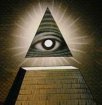Dow Jones & Co. has accepted Rupert Murdoch's acquisition offer. The $5 billion offer was accepted by the family members and trusts which control 32 percent of the voting shares. The acquisition will give Murdoch control of the second most widely read newspaper in the USA. The sale will become official after a board meeting this afternoon.
Rupert Murdoch finally won his long-coveted prize today, tentatively gaining enough support from the deeply divided Bancroft family to buy Dow Jones & Company, publisher of The Wall Street Journal, for $5 billion.
Family members and trusts representing about 32 percent of the shareholder vote indicated they would support Mr. Murdoch’s offer, though several details were still being worked out, according to people briefed on the matter.For Mr. Murdoch, the verdict represents the pinnacle of his long career building the News Corporation into a $28 billion global media empire that already includes more than 100 newspapers around the world, satellite broadcast operations, the Fox television network, the online social networking site MySpace and many other properties.Source: nytimes.com
Well here we go! It seems that Rupert Murdoch now has control of almost every major news outlet in the world! This can't be a good thing! What ever happend to the Trust-busting, like in the days of William Howard Taft? I think he knew what could and would happen if a small number of people controlled everything.
For those of you who don't know, or don't remember this from school, let me explain.
Trust-busting refers to government activities designed to break up trusts or monopolies. Theodore Roosevelt is the U.S. president most associated with dissolving trusts, but his chosen successor, William Howard Taft, actually began the most of the anti-trust proceedings.Trusts were large business entities that largely succeeded in controlling a market, essentially becoming a monopoly. The term became common in the late 19th century, when a system of trusts controlled much of the economy of the United States. In 1898, President William McKinley launched the "trust-busting" era when he appointed the U.S. Industrial Commission on Trusts, which interrogated Andrew Carnegie, John D. Rockefeller, Charles M. Schwab, and other industrial titans. The report of the Industrial Commission was seized upon by Theodore Roosevelt, who became known as a "Trust Buster," dissolving 44 trusts during his two terms as president. However, the "Trust Buster" name is probably more suited for Roosevelt's successor, William Howard Taft, who brought an end to 90 trusts in one term. Although Taft may have done more to control the trusts while in office, Roosevelt retains the nickname because he was the pioneer of trust-busting.
Senator John Sherman from Ohio, introduced legislation on July 2, 1890, to prevent trusts from forming. The Clayton Antitrust Act was enacted in 1914 to remedy deficiencies in the Sherman Act.
Now apply that to Rupert Murdoch, or should I say, News Corporation?
The government went after Microsoft claiming it was a monopoly, then why let News Corporation do the same thing with the news and media?!? I hope people understand just how much this man owns, and the power he welds over all of us because of this ownership.
Oh I think I know why, because even if they did, odds are you wouldn't even hear about it. Think about this for a moment, look at all the companies News Corporation owns, now think about this, if there were and action taken against Rupert Murdoch or News Corporation, who would report it? Maybe CNN, NBC, CBS, or ABC? I don't think so, problem is, all the owners of all these companies are members of the Bilderberg Group. I could be going out on a limb here, but the question I pose to you is this, "Do you really trust one man for all your news and media?" If so, I have some water front property I want to sell you in Florida!

No comments:
Post a Comment